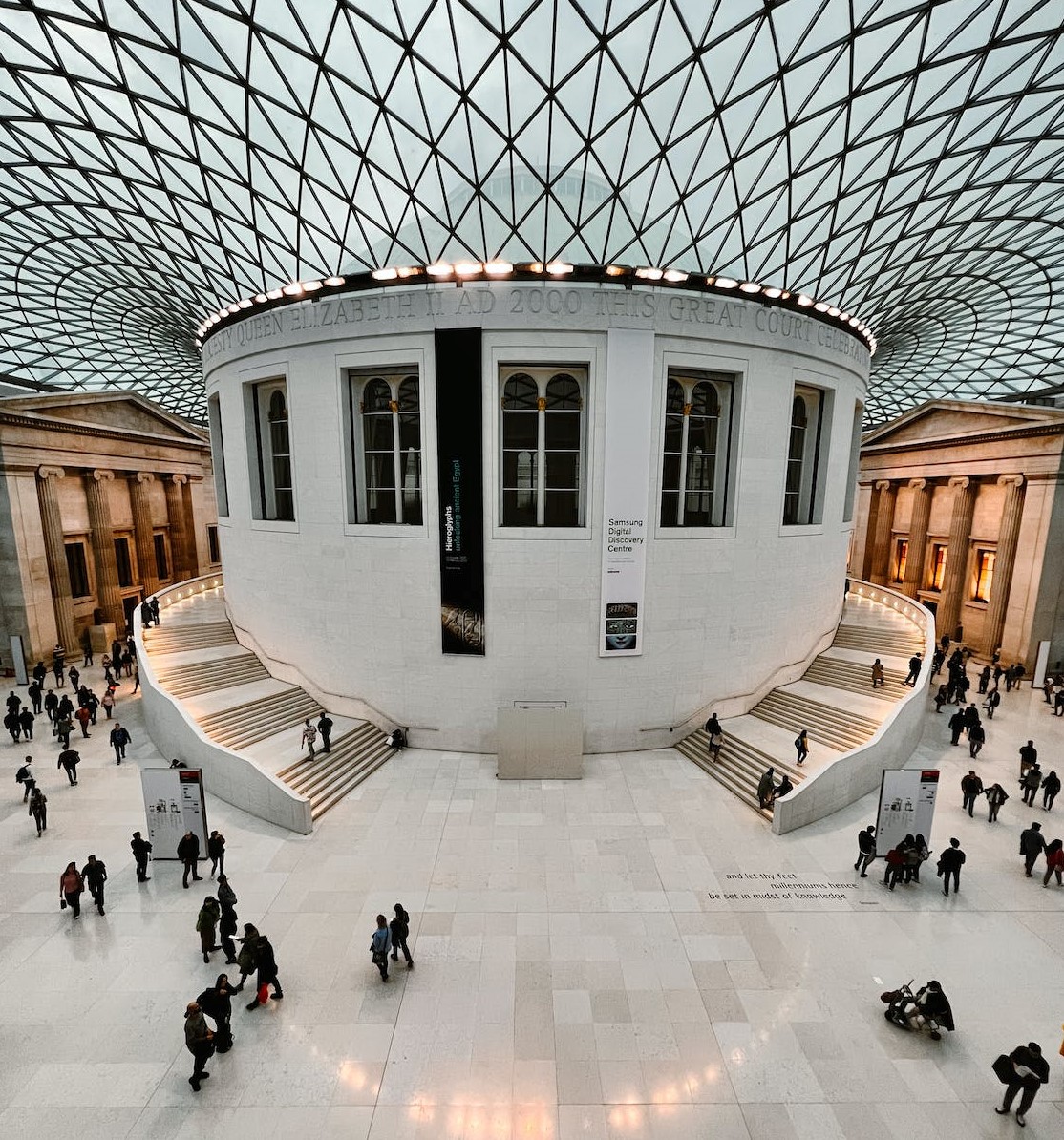The British Museum said it has recovered some the 2,000 items stolen from its collection – but it will take far longer to restore its reputation.
A member of staff suspected of involvement in the thefts in 2021 has been sacked and police have launched an investigation. They have interviewed a suspect but no arrests have yet been made. The stolen pieces are “small items of jewellery, gems, bits of gold that were not on public display”, said the museum which revealed a number of treasures were “missing, stolen or damaged” earlier this month.
“It is by far the biggest theft that I know about from a museum, especially for one of this calibre,” said Unesco forensic archaeologist Christos Tsirogiannis, describing the thefts as the worst in modern history.
He added: “It’s a massive amount for any museum, but this happening at the British Museum makes it even worse.”
Curator at Oxford University’s Pitt Rivers Museum, Prof Dan Hicks said the museums lack of record keeping about their collection means “this was a disaster waiting to happen”.
George Osborne, former chancellor, editor of the Evening Standard and now chairman of the British Museum admitted as much as he apologised to the nation. Osborne said the museum’s lack of a complete catalogue of its collection has been a risk, commenting “Someone with knowledge of what’s not registered has a big advantage in removing some of those items.”
The British Museum was founded in 1753 and holds more than eight million artefacts in its collection, amassed over centuries, of which 80,000 are on public display. The rest are held in storage.
British Museum director Hartwig Fischer has resigned in the wake of the scandal while his deputy has also “stepped back” after it emerged there had been warnings from whistleblowers about thefts for years.
Osborne has blamed “groupthink” by the museum’s senior management who refused to accept the scale of the thefts but said he doubted there has been a “cover-up”.
In his statement, Osborne said: “We believe we’ve been the victim of thefts over a long period of time and, frankly, more could have been done to prevent them.
“But I promise you this: it is a mess that we are going to clear up. I can tell you today that we’ve already started to recover some of the stolen items.”
The chairman since June 2021 continued: “I don’t myself believe there was a deliberate cover-up, although the review may find that to be the case.”
He added:“But was there some potential groupthink in the museum at the time, at the very top of the museum, that couldn’t believe an insider was stealing things, couldn’t believe a member of staff was doing this?
“Yes, that’s very possible, and we won’t be the only institution that has fallen foul to that.”
Osborne called the reputational damage to the museum a “statement of the obvious” while the scandal has intensified calls from nations demanding the return of their artifacts from the British Museum. Greek officials have renewed their calls for the return of the Parthenon marbles, as too Nigerian officials who are demanding the Benin bronzes and other looted treasures be returned to Africa.
Defending the British museum as a “source of great national pride” despite the scandal Osborne said many other large institutions are “potential victims to this kind of theft”. He rejected calls for the museum to return objects looted by the British Empire to their countries of origin saying the museum is a place where you can see all the civilisations together, and there are very few places like that in the world.
“Just because it would have been impossible to assemble that collection today, doesn’t make it illegitimate – I would say it makes it invaluable. In an age where we’re always being reminded of what divides us, it’s a place that reminds us of what we have in common.”
Fischer announced his resignation as director of the British Museum yesterday (August 25) – a position he held for seven years – and said the institution “did not respond as comprehensively” as it should have to a dossier of evidence about the thefts in 2021.
Within three hours of Fischer’s statement, his deputy Jonathan Williams announced he had agreed to “voluntarily step back from his normal duties” with immediate effect pending an independent review into the scandal.
Commenting on Fischer’s departure, Osborne said the German born director had “acted honourably” and that “no one has ever doubted Hartwig’s integrity, his dedication to his job, or his love for the museum”.




